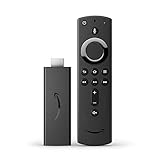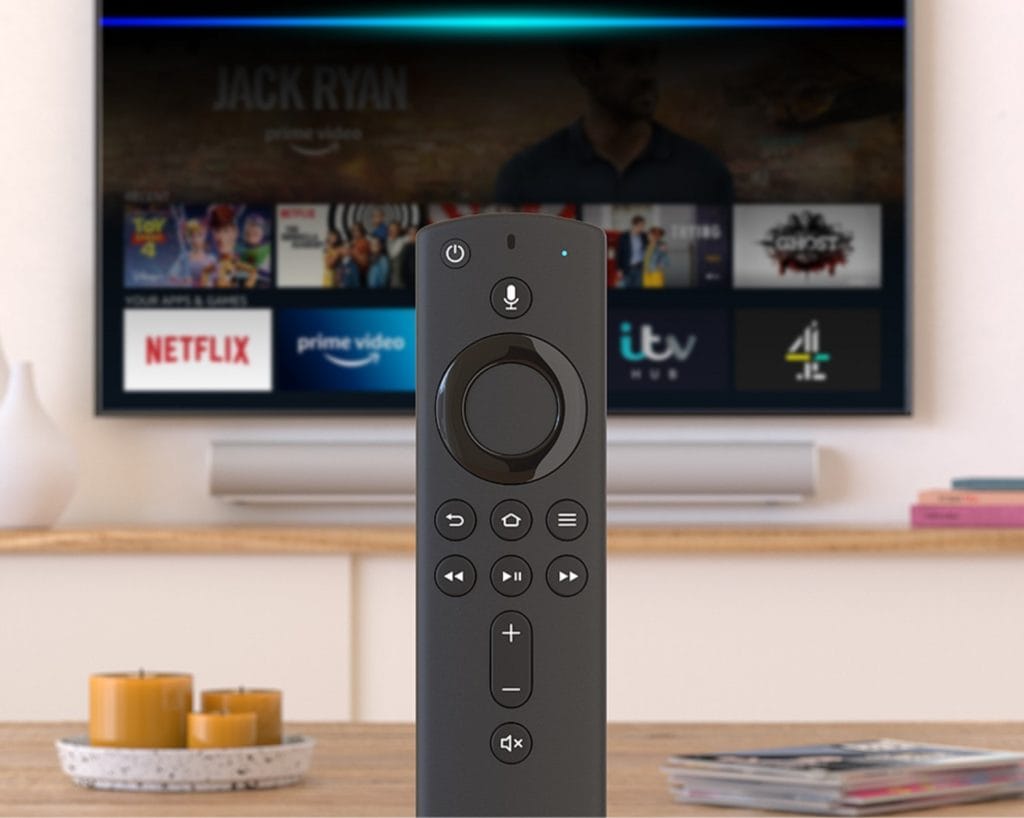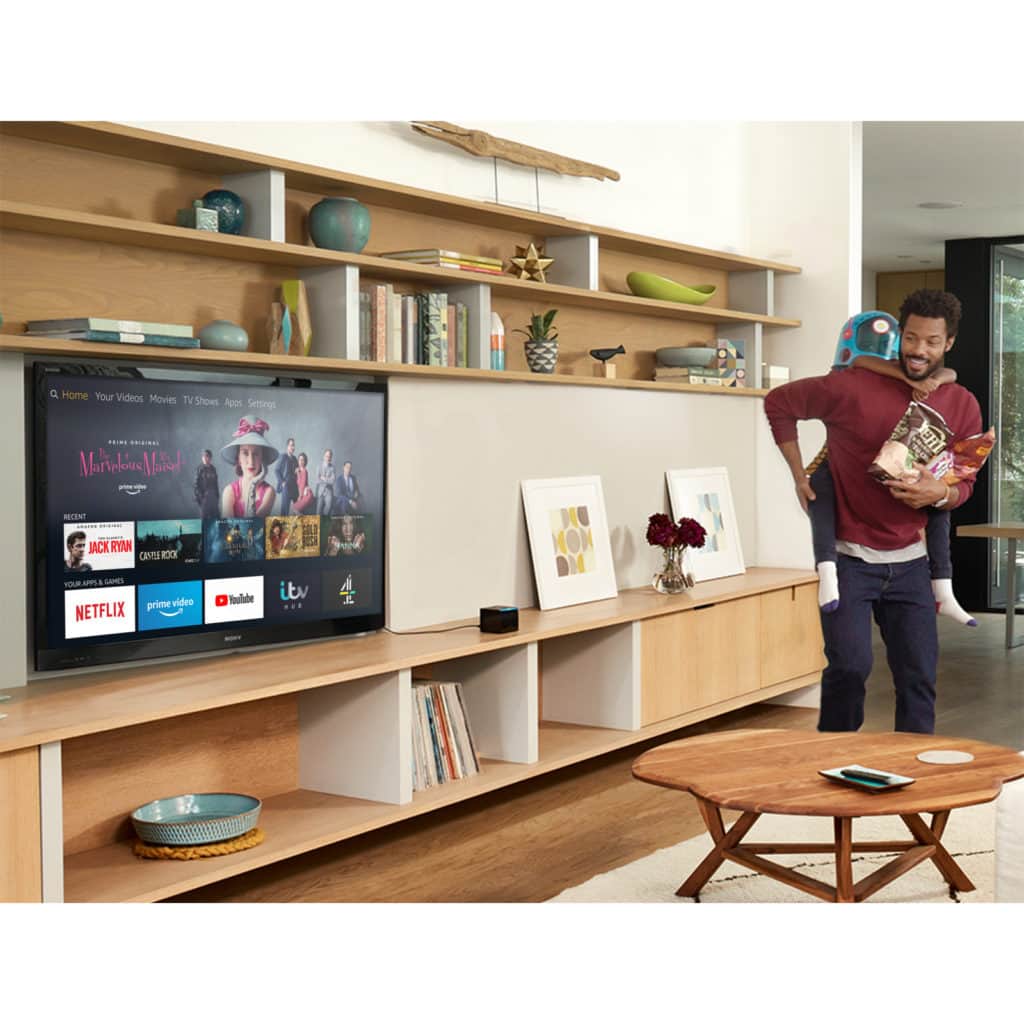Amazon Fire TV devices have been some of my favourite tech products in recent years. Even though I have shifted to the Nvidia Shield, these offer the best performance for the price of any streaming product I can think of.
With the launch of the Fire TV Stick Lite, you now have options starting at £30, going up to £50 for the 4K model, or if you want to go all out the Cube is £110.
| Preview | Product | Rating | Price | |
|---|---|---|---|---|
 |
All-new Fire TV Stick with Alexa Voice Remote (includes TV controls) | Dolby Atmos audio | 2020… | No ratings yet | £39.99 | Buy on Amazon |
 |
Introducing Fire TV Stick Lite with Alexa Voice Remote Lite (no TV controls) | 2020 release | No ratings yet | £29.99 | Buy on Amazon |
 |
Fire TV Stick 4K Ultra HD with Alexa Voice Remote | streaming media player | No ratings yet | £49.99 | Buy on Amazon |
Amazon Fire TV vs built-in smart TV functions
With the low cost of these devices, I am a firm believer everyone should dump the smart TV functions of their TV and opt for a dedicated streaming device. The one exception is for the actual watching live TV bit, and many TVs offer recording functions which Amazon can’t.
However, for all your streaming services, you are much better off with Amazon, or other comparable products. They are faster, with a better UI, upgradable and just lest glitchy. For example, my exorbitantly expensive (when I bought it) Sony AF8 OLED has a shocking smart interface that is slow and just unpleasant to use.
Amazon Firestick & Cube Comparison

Fire TV (3rd Gen) Stick vs Fire TV Stick Lite
The actual Fire TV Stick is the same hardware, so the same chipset, RAM, storage, and the same 1080P video quality.
However, the Fire TV Stick Lite has reduced audio support, only stating HDMI audio pass-through for Dolby Digital and Dolby Digital+.
The normal Fire Stick offers support for Dolby Atmos, Dolby Digital, Dolby Digital+ surround sound and HDMI Audio pass-through for Dolby Digital, Dolby Digital+ and Dolby Atmos.
Then the remote that is included is different. The Fire TV Stick with Alexa Voice Remote has TV controls built into it such as power and volume (well worth the extra £10 in my opinion)
Fire TV (3rd Gen) Stick and Fire TV Stick Lite vs Fire TV Stick (2nd Gen)
From Amazon:
The Fire TV Stick (3rd Gen) is the successor to Fire TV Stick (2nd Gen). It features an enhanced 1.7 GHz quad-core processor that makes it more powerful than the previous generation while using less power.
The new Fire TV Stick delivers faster streaming in 1080p at 60fps with HDR compatibility. The dual-band, dual-antenna WiFi supports 5 GHz networks for more stable streaming and fewer dropped connections.
The Fire TV Stick (3rd Gen) also features Dolby Atmos for immersive sound with compatible content and speakers, and an Alexa Voice Remote with dedicated power, volume, and mute buttons for easy control of TVs, soundbars, and A/V receivers with a single remote.
The Fire TV Stick Lite does NOT support Dolby Atmos
MediaTek MT8695D (3rd Gen Fire Stick ) vs MediaTek MT8127D (2nd Gen)
The new Mediatek chipset is a quad-core Cortex-A53 processor @ 1.7 GHz with Imagination PowerVR GE8300 GPU supporting OpenGL ES 3.2. This is the same chipset as the 4K Fire Stick, so it has plenty of power and will made the UI far more responsive
The old MediaTek MT8127D was a quad core chipset running an ancient ARM Cortex-A7 @ 1.3 GHz paired with a Mali 450 MP4 GPU.
Fire TV Stick 4K 2018
This Fire TV Stick 4K which launched back in 2018, is in my opinion, the best Fire TV Stick ever, and offers the best performance to price ratio of any streaming device on the market.
The underlying hardware is similar to the 3rd Gen Fire Stick, using the same chipset but it has more RAM at 1.5GB.
However, as the name suggests, this supports 4K, and not only that it supports both Dolby Vision and HDR10+, making it universally compatible with current HDR technologies across TVs.
Fire TV Cube 2019

The Fire TV Cube is the most powerful Amazon TV device to date, and it is superb, I did have issues with the way Ring notifications bothered me, but I think that is fixed now.
The chipset in this is far more powerful than the other devices, you also get more RAM at 2GB and double the storage at 16GB. So the overall UI and performance is quicker and smoother than the other models.
You then basically get an Amazon Echo Dot built into it, offering far-field and near-field voice support.
The only issue I have with this is that I don’t think it is worth more than double the cost of the Fire TV Stick 4K 2018. However, it has been as low as £80 and it that price I would 100% recommend buying it.
Overall
| Preview | Product | Rating | Price | |
|---|---|---|---|---|
 |
All-new Fire TV Stick with Alexa Voice Remote (includes TV controls) | Dolby Atmos audio | 2020… | No ratings yet | £39.99 | Buy on Amazon |
 |
Introducing Fire TV Stick Lite with Alexa Voice Remote Lite (no TV controls) | 2020 release | No ratings yet | £29.99 | Buy on Amazon |
 |
Fire TV Stick 4K Ultra HD with Alexa Voice Remote | streaming media player | No ratings yet | £49.99 | Buy on Amazon |
The two new Amazon Fire Sticks offer a massive upgrade in performance from the older models, the interface should be much smoother when navigating around and everything should be more responsive.
Personally, I think the added audio support and improved remote of the Fire TV (3rd Gen) Stick is worth the extra tenner over the Lite model.
But then, if you are willing to spend £40 on the Fire TV (3rd Gen), you may as well just spend another tenner and get the Fire TV Stick 4K. I am not sure of any new TV that is being sold not that is not 4K, so it is well worth the extra cash.
However, I appreciate that for many £10 or £20 can be a lot of money, and in that case, either the Lite or 3rd Gen is still superb options.
It is also worth noting Amazon reduces prices temporarily for sales quite frequently. So if you are not in a rush to buy, the 4K model has been £40 recently and has been as low as £30 back in April and November. Black Friday and potentially Amazon Prime day are coming up, so there will be deals to be had on these days.
Specification Comparison Table
| Fire TV Stick 3rd Gen / Fire TV Stick Lite |
Fire TV Stick 2nd Gen |
Fire TV Stick 4K | Fire TV Cube | |
|---|---|---|---|---|
| Year Launched | 2020 | 2016 Updated 2019 with new remote |
2018 | 2019 |
| Price | £29.99 (Lite) £39.99 (3rd Gen ) |
£39.99 | £49.99 | £109.99 |
| Resolution | Up to 1920 x 1080 (1080p) – 60Hz | 720p and 1080p up to 60fps | 2160p, 1080p and 720p up to 60 fps | 2160p, 1080p and 720p up to 60 fps |
| HDR | HDR10+, HLG | None | Dolby Vision, HDR 10, HDR10+, HLG | Dolby Vision, HDR 10, HDR10+, HLG |
| Video Codecs | H.265 (HEVC). Hardware-accelerated up to 1080p @ 60fps, 20 Mbps, Main 10 Profile Level 4.1, Color space 8-bit and 10-bit input with HDR10, HDR10+, and HLG.
H.264. Hardware-accelerated up to 1080p @ 60fps, High Profile up to Level 4. VP8. Supported up to 1080p 30fps. Baseline profile, non-secure VP9. Hardware accelerated up to 1080p @ 60fps, Profile 2 up to 20 Mbps |
H.265 (HEVC). Hardware accelerated up to 1080p @ 30fps, 25 Mbps, Main Profile Level 4.0, Color space 8-bit support
H.264. Hardware accelerated up to 1080p @ 30fps or 720p @ 60fps, 20 Mbps, High Profile up to Level 4 VP8 & VP9 is not listed |
Dolby Vision. Dolby Vision support for Profile 4-MEL, 5, 8, 9. (Up to Level 9 for profiles 5 and 8. Up to Level 5 for Profile 9.)
H.265 (HEVC). Hardware accelerated up to 3840x2160p (4K) @ 60fps, 35 Mbps, Main 10 Profile Level 5.1, Color space 8-bit and 10-bit input with HDR10, HDR10+, and HLG. H.264. Hardware accelerated up to 3840x2160p (4K) @ 30fps, 1080p @ 60fps, or 720p @ 60fps, 20 Mbps, High Profile up to Level 4. VP8. Supported up to 1080p 30fps. Baseline profile, non-secure VP9. Hardware accelerated up to 1080p @ 60fps, Profile 2 up to 20 Mbps |
H.265 (HEVC). Hardware accelerated up to 2160p (4K) @ 60fps Main Profile Level 5.1
H.264. Hardware accelerated up to 2160p @ 30fps or 1080p @ 60fps, 20 Mbps, High Profile up to Level 4 VP8 VP9. Hardware accelerated up to 2160p @ 60fps (with limitations) |
| Audio | Dolby Atmos, Dolby Digital, Dolby Digital+ surround sound (not on Lite model)
HDMI Audio pass-through for Dolby Digital, Dolby Digital+ and Dolby Atmos. |
Dolby Audio, 5.1 surround sound 2ch stereo, and HDMI audio pass-through up to 7.1 |
Dolby Atmos, 7.1 surround sound 2ch stereo and HDMI audio pass through up to 5.1. |
Dolby Atmos, 7.1 surround sound 2ch stereo and HDMI audio pass through up to 5.1. |
| Speaker | No | No | No | Built-in 1.6” (40 mm) speaker |
| Voice Control | Yes | Yes, with Alexa Voice Remote or paired Echo | Yes, with the Alexa Voice Remote or paired echo | Far-field and near-field voice support |
| Processor | MediaTek MT8695D Quad Core 4x ARM Cortex-A53 @1.7GHz 32-bit |
MediaTek MT8127D 4x ARM Cortex-A7 @ 1.3 GHz |
MediaTek MT8695D 4x ARM Cortex-A53 @1.7GHz |
Amlogic S922X Hex-core 4 x Arm Coretex A73 – 2.2 GHz 2 x Arm Coretex A53 – 1.9 GHz |
| GPU | IMG GE8300 | Mali 450 MP4 | PowerVR IMG GE8300 | Mali G52-MP6, 800 MHz |
| Storage | 8GB | 8GB | 8GB | 16GB |
| Memory | 1GB, DDR4 | 1GB | 1.5GB | 2GB |
| Wi-Fi | 802.11ac dual-band MIMO Wi-Fi – dual-antenna | 802.11ac dual-band MIMO Wi-Fi | 802.11ac dual-band MIMO Wi-Fi | 802.11ac dual-band MIMO Wi-Fi – dual-antenna |
| Ethernet | No – Ethernet adaptopr limited to 10/100 | No – Ethernet adaptopr limited to 10/100 | No – Ethernet adaptopr limited to 10/100 | |
| Ports | HDMI, Power, Micro USB, Wired Infrared support | HDMI output, micro-USB for power only. | HDMI output, micro-USB for power only. | HDMI, power, micro-USB, wired infrared support |
| Bluetooth | Bluetooth 5.0 | Bluetooth 4.1 | BT 4.2 and BLE | Bluetooth 5.0 + LE. |